Thanks to a generous grant from the MetLife Foundation, the Lender Center for Social Justice is excited to announce a 3-year programmatic initiative to explore the racial wealth gap in the United States, including its causes, its consequences, and promising and effective solutions. The Lender Center will bring together thought leaders from across the nation, host events, seed faculty research projects, and train postdoctoral scholars. The ultimate goal is to develop dynamic collaborations and impactful projects that accelerate efforts to address the racial wealth gap and help dismantle the root causes of wealth disparities.
- MetLife Foundation-Lender Center Internal Grant Opportunity
- MetLife Foundation-Lender Center Post-Doctoral Fellowship Opportunity
Lender Conversations: Seeking Racial Equity in the Entertainment Industry
Wednesday, October 23, 2024
6-9 p.m.
NeueHouse, 6121 Sunset Blvd, Los Angeles, CA 90028
Lender Center for Social Justice Thought Leader Advisory Group on Addressing the Racial Wealth Gap
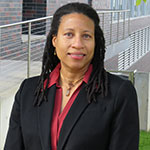 Kristen Barnes, J.D., Ph.D., is the associate dean for faculty research and a professor of law in Syracuse University’s College of Law. Dr. Barnes teaches courses on property law, housing law, land use planning and law, voting rights, and international law. She received her B.A. in political science from Vassar College, J.D. from Harvard Law School, and Ph.D. in literature from Duke University. Dr. Barnes’ scholarship focuses on antidiscrimination and equality law, property law, housing law, constitutional law, and international law. She has published articles in top law review journals including Duke Journal of Constitutional Law and Public Policy, Harvard Journal of Racial and Ethnic Justice, and Case Western Reserve Law Review.
Kristen Barnes, J.D., Ph.D., is the associate dean for faculty research and a professor of law in Syracuse University’s College of Law. Dr. Barnes teaches courses on property law, housing law, land use planning and law, voting rights, and international law. She received her B.A. in political science from Vassar College, J.D. from Harvard Law School, and Ph.D. in literature from Duke University. Dr. Barnes’ scholarship focuses on antidiscrimination and equality law, property law, housing law, constitutional law, and international law. She has published articles in top law review journals including Duke Journal of Constitutional Law and Public Policy, Harvard Journal of Racial and Ethnic Justice, and Case Western Reserve Law Review.
 Josh Bivens, Ph.D., is the research director and chief economist at the Economic Policy Institute. He’s a macroeconomist by training and has done work on fiscal and monetary policy, inflation and unemployment, and taxation and social insurance. He has published in both popular and academic journals and has testified numerous times before Congress.
Josh Bivens, Ph.D., is the research director and chief economist at the Economic Policy Institute. He’s a macroeconomist by training and has done work on fiscal and monetary policy, inflation and unemployment, and taxation and social insurance. He has published in both popular and academic journals and has testified numerous times before Congress.
 Vicki Brackens has over 30 years of experience as an entrepreneur working in the area of financial education and financial services. After completing a successful two-and-a-half-decade career with Metropolitan Life Financial Services, she associated her financial services firm, Brackens Financial Solutions Network, with Lincoln Financial Advisors Corp. in Syracuse. Known as “America’s Money Maven,” Brackens was co-host of Financial Fitness on PBS affiliate WCNY in Syracuse. On Sunday mornings, she can be heard providing strategic financial advice on Inspiration for the Nation, hosted by George Kilpatrick.
Vicki Brackens has over 30 years of experience as an entrepreneur working in the area of financial education and financial services. After completing a successful two-and-a-half-decade career with Metropolitan Life Financial Services, she associated her financial services firm, Brackens Financial Solutions Network, with Lincoln Financial Advisors Corp. in Syracuse. Known as “America’s Money Maven,” Brackens was co-host of Financial Fitness on PBS affiliate WCNY in Syracuse. On Sunday mornings, she can be heard providing strategic financial advice on Inspiration for the Nation, hosted by George Kilpatrick.
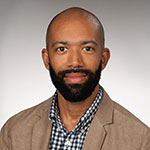 Sean Drake, Ph.D., is an assistant professor of sociology in the Maxwell School of Citizenship and Public Affairs at Syracuse University, senior research associate at the Maxwell Center for Policy Research, and faculty affiliate at the University of Michigan School of Social Work. Professor Drake’s research and teaching focus on racial and ethnic inequalities, education systems, and the children of immigrants. His first book, Academic Apartheid: Race and the Criminalization of Failure in an American Suburb, was published in 2022 with University of California Press. His research has been funded by the Ford Foundation and the Russell Sage Foundation, and his work has appeared in the Journal of Ethnic and Migration Studies, Urban Education, and the Journal of Education for Students Placed at Risk. His ongoing projects are focused on students facing homelessness, African refugee youth, and students of color who join historically White fraternities and sororities in college.
Sean Drake, Ph.D., is an assistant professor of sociology in the Maxwell School of Citizenship and Public Affairs at Syracuse University, senior research associate at the Maxwell Center for Policy Research, and faculty affiliate at the University of Michigan School of Social Work. Professor Drake’s research and teaching focus on racial and ethnic inequalities, education systems, and the children of immigrants. His first book, Academic Apartheid: Race and the Criminalization of Failure in an American Suburb, was published in 2022 with University of California Press. His research has been funded by the Ford Foundation and the Russell Sage Foundation, and his work has appeared in the Journal of Ethnic and Migration Studies, Urban Education, and the Journal of Education for Students Placed at Risk. His ongoing projects are focused on students facing homelessness, African refugee youth, and students of color who join historically White fraternities and sororities in college.
 Kishi Animashaun Ducre, Ph.D., is the associate dean of diversity, equity, and inclusion and former chair and associate professor in African American Studies in the College of Arts and Sciences. She has authored works on environmental justice, feminism, and community-based research, including a book A Place We Call Home: Gender, Race, and Justice in Syracuse and co-edited volume entitled, Addressing Environmental and Food Justice Toward Dismantling the School-to-Prison Pipeline: Poisoning and Imprisoning Youth. She has also curated photography exhibitions based upon her community-based arts research known as photovoice in New York, California, and Trinidad and Tobago.
Kishi Animashaun Ducre, Ph.D., is the associate dean of diversity, equity, and inclusion and former chair and associate professor in African American Studies in the College of Arts and Sciences. She has authored works on environmental justice, feminism, and community-based research, including a book A Place We Call Home: Gender, Race, and Justice in Syracuse and co-edited volume entitled, Addressing Environmental and Food Justice Toward Dismantling the School-to-Prison Pipeline: Poisoning and Imprisoning Youth. She has also curated photography exhibitions based upon her community-based arts research known as photovoice in New York, California, and Trinidad and Tobago.
 Marcelle Haddix, Ph.D., is Distinguished Dean’s Professor of Literacy, Race and Justice at Syracuse University, where she is an inaugural co-director of the Lender Center for Social Justice. She holds a courtesy appointment as professor in nutrition and food studies and is affiliated faculty in African American studies, composition and rhetorical studies, and women’s and gender studies. She currently serves at the associate provost for strategic initiatives. In the Syracuse community, she facilitates the Writing Our Lives project for urban youth writers, the Breedlove Readers Book Club for middle and high school Black girls, and the Soulful Saturday Sistas Black women’s literary club and free library project. Dr. Haddix was selected as the 2021 winner of the Divergent Award for Excellence in Literacy Advocacy, given by the Initiative for 21st Century Literacies Research. A 500-hour certified registered yoga instructor, Dr. Haddix is co-founder of the Sankofa Reproductive Health and Healing Center and a founding member of the Café Sankofa Cooperative.
Marcelle Haddix, Ph.D., is Distinguished Dean’s Professor of Literacy, Race and Justice at Syracuse University, where she is an inaugural co-director of the Lender Center for Social Justice. She holds a courtesy appointment as professor in nutrition and food studies and is affiliated faculty in African American studies, composition and rhetorical studies, and women’s and gender studies. She currently serves at the associate provost for strategic initiatives. In the Syracuse community, she facilitates the Writing Our Lives project for urban youth writers, the Breedlove Readers Book Club for middle and high school Black girls, and the Soulful Saturday Sistas Black women’s literary club and free library project. Dr. Haddix was selected as the 2021 winner of the Divergent Award for Excellence in Literacy Advocacy, given by the Initiative for 21st Century Literacies Research. A 500-hour certified registered yoga instructor, Dr. Haddix is co-founder of the Sankofa Reproductive Health and Healing Center and a founding member of the Café Sankofa Cooperative.
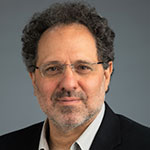 Pablo Mitnik, Ph.D., is an assistant research scientist at the University of Michigan’s Center for Inequality Dynamics. His research focuses on economic inequality, intergenerational mobility, labor markets, and statistical methods. A large part of his recent work aims at improving the methodological approaches and data used to measure mobility, inequality of opportunity, and racial disparities. His empirical research relies widely on tax and other administrative data. He is the principal investigator of the project Measuring Racial Inequality in Tax Data, which uses restricted population-level data available at the Census Bureau to study methods to estimate racial economic disparities when self-reported information on race is absent. He is also a co-investigator of the Wealth and Mobility Study, which uses population-level tax and home-equity data to examine wealth inequality, segregation, and mobility in the United States. Both of these projects have been funded by the Bill and Melinda Gates Foundation.
Pablo Mitnik, Ph.D., is an assistant research scientist at the University of Michigan’s Center for Inequality Dynamics. His research focuses on economic inequality, intergenerational mobility, labor markets, and statistical methods. A large part of his recent work aims at improving the methodological approaches and data used to measure mobility, inequality of opportunity, and racial disparities. His empirical research relies widely on tax and other administrative data. He is the principal investigator of the project Measuring Racial Inequality in Tax Data, which uses restricted population-level data available at the Census Bureau to study methods to estimate racial economic disparities when self-reported information on race is absent. He is also a co-investigator of the Wealth and Mobility Study, which uses population-level tax and home-equity data to examine wealth inequality, segregation, and mobility in the United States. Both of these projects have been funded by the Bill and Melinda Gates Foundation.
 dt ogilvie, Ph.D., is noted for her extensive international academic reputation in strategic management, collaborative economic development, and entrepreneurship. She is professor of urban entrepreneurship and economic development, former Distinguished Professor of urban entrepreneurship, and former dean of the Saunders College of Business at the Rochester Institute of Technology. She founded RIT’s Center for Urban Entrepreneurship and was former chair of its advisory board. She was on loan to Rochester’s mayor for three years, where she founded ROC City Biz, which offers entrepreneurship programs for the city, and reorganized Rochester Economic Development Corporation, in addition to other work for the mayor. Dr. ogilvie co-sponsored the first White House Urban Entrepreneurship Summit, has spoken about entrepreneurship at the White House, and was invited to entrepreneurship events at the Obama White House. The State Department invited her to keynote, give workshops, and speak about entrepreneurship in other countries.
dt ogilvie, Ph.D., is noted for her extensive international academic reputation in strategic management, collaborative economic development, and entrepreneurship. She is professor of urban entrepreneurship and economic development, former Distinguished Professor of urban entrepreneurship, and former dean of the Saunders College of Business at the Rochester Institute of Technology. She founded RIT’s Center for Urban Entrepreneurship and was former chair of its advisory board. She was on loan to Rochester’s mayor for three years, where she founded ROC City Biz, which offers entrepreneurship programs for the city, and reorganized Rochester Economic Development Corporation, in addition to other work for the mayor. Dr. ogilvie co-sponsored the first White House Urban Entrepreneurship Summit, has spoken about entrepreneurship at the White House, and was invited to entrepreneurship events at the Obama White House. The State Department invited her to keynote, give workshops, and speak about entrepreneurship in other countries.
 Cindy Pace, Ph.D., is vice president, global chief diversity, equity and inclusion officer at MetLife. In this role, Dr Pace leads the global DEI strategy for the enterprise with more than 50,000 employees across the world. Aligned to the company’s business imperative, the strategy drives and promotes DEI as critical success factors to fuel innovation, cross-cultural collaboration and business success. Under her leadership, the ongoing progress made on DEI at MetLife has been recognized by Great Place to Work, UN Women, UN Global Compact, McKinsey and Lean In, Seramount, HRC, Disability:IN, HACR, Bloomberg Gender Equality Index. Dr. Pace is the executive producer and host of the MetLife sponsored Inclusion Begins with Me: Conversations that Matter podcast ranked in the Top 250 business and management podcast on Apple and Top 5% of podcast by Listen Score. The podcast examines the pivotal role people play in creating inclusive workplaces.
Cindy Pace, Ph.D., is vice president, global chief diversity, equity and inclusion officer at MetLife. In this role, Dr Pace leads the global DEI strategy for the enterprise with more than 50,000 employees across the world. Aligned to the company’s business imperative, the strategy drives and promotes DEI as critical success factors to fuel innovation, cross-cultural collaboration and business success. Under her leadership, the ongoing progress made on DEI at MetLife has been recognized by Great Place to Work, UN Women, UN Global Compact, McKinsey and Lean In, Seramount, HRC, Disability:IN, HACR, Bloomberg Gender Equality Index. Dr. Pace is the executive producer and host of the MetLife sponsored Inclusion Begins with Me: Conversations that Matter podcast ranked in the Top 250 business and management podcast on Apple and Top 5% of podcast by Listen Score. The podcast examines the pivotal role people play in creating inclusive workplaces.
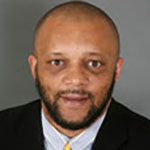 Gregory N. Price, Ph.D., is the JP Morgan Chase professor, minority and emerging business II, in the Department of Economics and Finance, University of New Orleans. His previous appointments include Charles E. Merrill professor and chair, Department of Economics, Morehouse College, director of the Mississippi Urban Research Center, professor of economics, Jackson State University, and economics program director, National Science Foundation. He is currently the editor of the Review of Black Political Economy, and past president of the National Economic Association. An applied econometrician and theorist, his current research efforts are in economic stratification, African economic development, the causes, and consequences of Entrepreneurship/Slavery. His research has been published in a wide variety of journals such as Economics and Human Biology, Review of Black Political Economy, Review of Economics and Statistics, American Economic Review, Industrial and Labor Relations, Social Science Quarterly, and African Development Review.
Gregory N. Price, Ph.D., is the JP Morgan Chase professor, minority and emerging business II, in the Department of Economics and Finance, University of New Orleans. His previous appointments include Charles E. Merrill professor and chair, Department of Economics, Morehouse College, director of the Mississippi Urban Research Center, professor of economics, Jackson State University, and economics program director, National Science Foundation. He is currently the editor of the Review of Black Political Economy, and past president of the National Economic Association. An applied econometrician and theorist, his current research efforts are in economic stratification, African economic development, the causes, and consequences of Entrepreneurship/Slavery. His research has been published in a wide variety of journals such as Economics and Human Biology, Review of Black Political Economy, Review of Economics and Statistics, American Economic Review, Industrial and Labor Relations, Social Science Quarterly, and African Development Review.
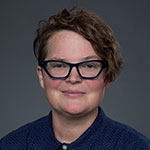 Gretchen Purser, Ph.D., is an associate professor of sociology in the Maxwell School of Citizenship and Public Affairs at Syracuse University. She also serves as the interim director of the Lender Center for Social Justice and co-research director on advocacy and activism for the Program for the Advancement of Research on Conflict and Collaboration. She received her Ph.D. in sociology from the University of California at Berkeley and has held postdoctoral fellowships at the University of California at Davis, the American Academy of Arts and Sciences, and the School for Advanced Research. She is currently a fellow of the Robert Wood Johnson Foundation’s Interdisciplinary Research Leaders program. Purser’s scholarship focuses broadly on precarious work and the low-wage labor market as well as the reproduction and lived experience of urban poverty in the U.S. She uses ethnographic and/or community-based research methods to explore the changing nature of work and workers’ movements, the housing struggles of the poor and the ground-level practices of neoliberal poverty management.
Gretchen Purser, Ph.D., is an associate professor of sociology in the Maxwell School of Citizenship and Public Affairs at Syracuse University. She also serves as the interim director of the Lender Center for Social Justice and co-research director on advocacy and activism for the Program for the Advancement of Research on Conflict and Collaboration. She received her Ph.D. in sociology from the University of California at Berkeley and has held postdoctoral fellowships at the University of California at Davis, the American Academy of Arts and Sciences, and the School for Advanced Research. She is currently a fellow of the Robert Wood Johnson Foundation’s Interdisciplinary Research Leaders program. Purser’s scholarship focuses broadly on precarious work and the low-wage labor market as well as the reproduction and lived experience of urban poverty in the U.S. She uses ethnographic and/or community-based research methods to explore the changing nature of work and workers’ movements, the housing struggles of the poor and the ground-level practices of neoliberal poverty management.
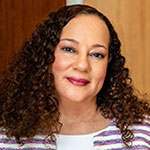 Kira Reed, Ph.D., is an associate professor of management in the Martin J. Whitman School of Management at Syracuse University. She is also a senior research associate at the Lender Center for Social Justice. Kira helped develop and implement university-wide requirements (First Year Seminar and IDEA course requirements) that are infused with belonging, diversity, equity, and inclusion content and experiences. She was a co-leader of the Social Differences, Social Justice Research Cluster at the university and helped recruit faculty to the Whitman school doing research in this area. Her recent research explores the intersection of the political environment, gender, and corporate social responsibility.
Kira Reed, Ph.D., is an associate professor of management in the Martin J. Whitman School of Management at Syracuse University. She is also a senior research associate at the Lender Center for Social Justice. Kira helped develop and implement university-wide requirements (First Year Seminar and IDEA course requirements) that are infused with belonging, diversity, equity, and inclusion content and experiences. She was a co-leader of the Social Differences, Social Justice Research Cluster at the university and helped recruit faculty to the Whitman school doing research in this area. Her recent research explores the intersection of the political environment, gender, and corporate social responsibility.
 Blane Ruschak is the president of the Ph.D. Project. He attended Rutgers College in New Jersey and graduated with an economics bachelor of science. He earned a master’s degree in accounting at the University of Hawaii at Manoa. He began his career in the audit department of the KPMG Honolulu office where he serviced clients in the healthcare, non profit, real estate, agribusiness and hospitality industries. Blane became the national director of campus recruiting as part of the KPMG National Recruiting team in Montvale, NJ, where he oversaw all intern and entry level hiring for KPMG’s audit, tax and advisory practices as well as their University Relations Program. He was tasked with increasing the diversity within the KPMG US network. Effective October 1, 2021, Blane transitioned to full-time support of The PhD Project, an initiative started in 1994 to increase the diversity at the front of the classroom and ultimately in business.
Blane Ruschak is the president of the Ph.D. Project. He attended Rutgers College in New Jersey and graduated with an economics bachelor of science. He earned a master’s degree in accounting at the University of Hawaii at Manoa. He began his career in the audit department of the KPMG Honolulu office where he serviced clients in the healthcare, non profit, real estate, agribusiness and hospitality industries. Blane became the national director of campus recruiting as part of the KPMG National Recruiting team in Montvale, NJ, where he oversaw all intern and entry level hiring for KPMG’s audit, tax and advisory practices as well as their University Relations Program. He was tasked with increasing the diversity within the KPMG US network. Effective October 1, 2021, Blane transitioned to full-time support of The PhD Project, an initiative started in 1994 to increase the diversity at the front of the classroom and ultimately in business.
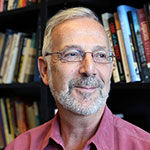 Thomas Shapiro, Ph.D., is a research professor at The Heller School for Social Policy and Management, Brandeis University. His current research projects focus on race, wealth, and land. He advises on the Wealth Survey Research Advisory Board for the Federal Reserve Bank, Boston and the Massachusetts Baby Bonds Task Force. Professor Shapiro’s primary interest is in wealth, racial inequality, and public policy. He is a leader in the asset development field with a particular focus on closing the racial wealth gap through policies ranging from Children’s Savings Accounts to Baby Bonds to Reparations. With Dr. Melvin Oliver, he wrote the award-winning Black Wealth/ White Wealth, which received the 1997 Distinguished Scholarly Publication Award from the American Sociological Association. His other books include The Hidden Cost of Being African American: How Wealth Perpetuates Inequality, published by Oxford University Press, 2004; and Toxic Inequality, published in 2017 by Basic Books.
Thomas Shapiro, Ph.D., is a research professor at The Heller School for Social Policy and Management, Brandeis University. His current research projects focus on race, wealth, and land. He advises on the Wealth Survey Research Advisory Board for the Federal Reserve Bank, Boston and the Massachusetts Baby Bonds Task Force. Professor Shapiro’s primary interest is in wealth, racial inequality, and public policy. He is a leader in the asset development field with a particular focus on closing the racial wealth gap through policies ranging from Children’s Savings Accounts to Baby Bonds to Reparations. With Dr. Melvin Oliver, he wrote the award-winning Black Wealth/ White Wealth, which received the 1997 Distinguished Scholarly Publication Award from the American Sociological Association. His other books include The Hidden Cost of Being African American: How Wealth Perpetuates Inequality, published by Oxford University Press, 2004; and Toxic Inequality, published in 2017 by Basic Books.
 Jhacova Williams, Ph.D., is an applied microeconomist focusing primarily on economic history and cultural economics. She is an assistant professor at American University in the Department of Public Administration and Policy. Her previous work has examined Southern culture and the extent to which historical events have impacted the political behavior and economic outcomes of Southern Black Americans. Recent examples include historical lynchings and the political participation of Blacks; and Confederate symbols and Black-White labor market differentials. She has also done a series of projects investigating the role of structural racism in shaping racial economic disparities in labor markets. Prior to joining American University, she worked at Xavier University of Louisiana, Clemson University, the Economic Policy Institute, and the RAND Corporation.
Jhacova Williams, Ph.D., is an applied microeconomist focusing primarily on economic history and cultural economics. She is an assistant professor at American University in the Department of Public Administration and Policy. Her previous work has examined Southern culture and the extent to which historical events have impacted the political behavior and economic outcomes of Southern Black Americans. Recent examples include historical lynchings and the political participation of Blacks; and Confederate symbols and Black-White labor market differentials. She has also done a series of projects investigating the role of structural racism in shaping racial economic disparities in labor markets. Prior to joining American University, she worked at Xavier University of Louisiana, Clemson University, the Economic Policy Institute, and the RAND Corporation.
 Monne Williams is a partner in McKinsey & Company’s Atlanta office. She has led multiple transformation efforts in both the private and social sectors. Monne focuses on improving organizations through better talent, culture, and capability building practices. Monne is active in McKinsey’s efforts to drive both racial and gender equity. She is a leader in McKinsey’s Institute for Black Economic Mobility and coauthored the 2021 and 2022 Race in the Workplace reports. She also coauthored the 2022 Women in the Workplace report. Monne serves on the board for Reaching Out, an organization committed to developing LGBTQ+ leaders.
Monne Williams is a partner in McKinsey & Company’s Atlanta office. She has led multiple transformation efforts in both the private and social sectors. Monne focuses on improving organizations through better talent, culture, and capability building practices. Monne is active in McKinsey’s efforts to drive both racial and gender equity. She is a leader in McKinsey’s Institute for Black Economic Mobility and coauthored the 2021 and 2022 Race in the Workplace reports. She also coauthored the 2022 Women in the Workplace report. Monne serves on the board for Reaching Out, an organization committed to developing LGBTQ+ leaders.